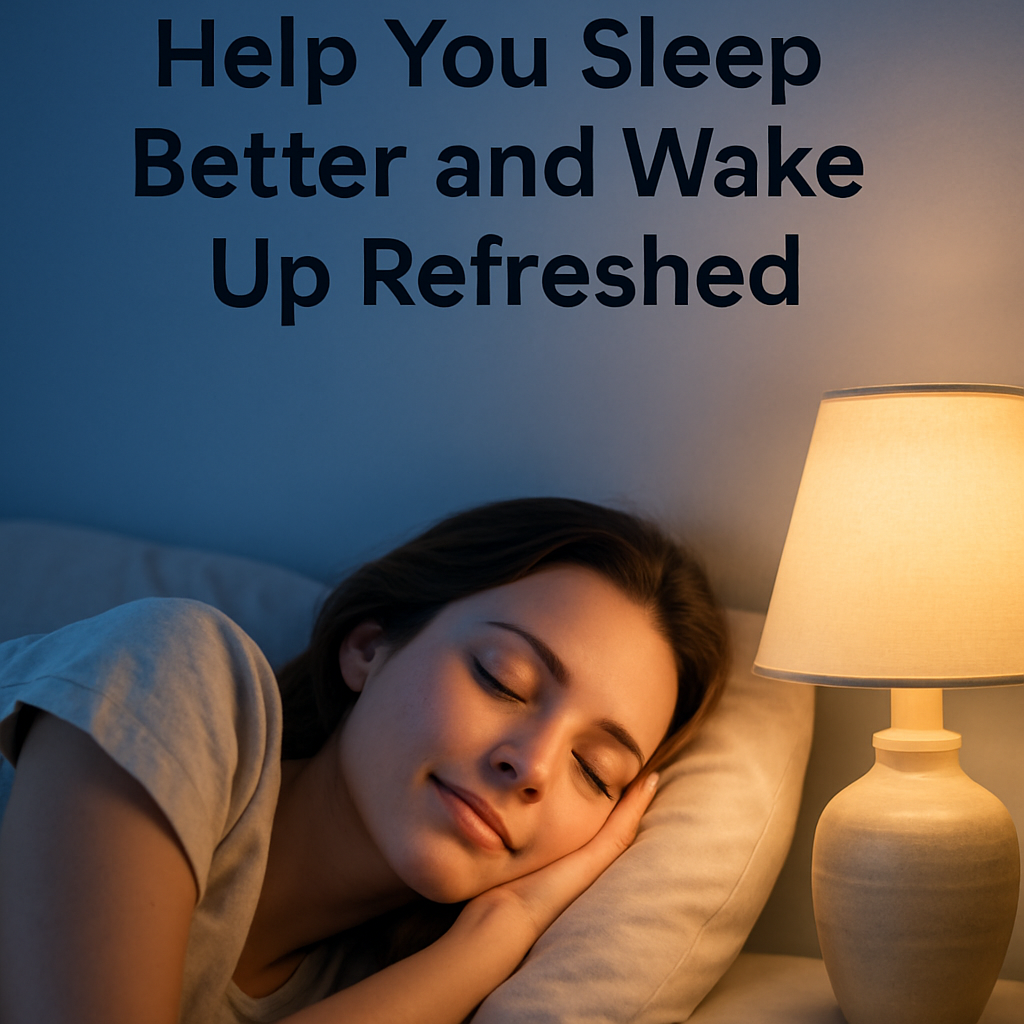A good day starts the night before. Your evening routine plays a powerful role in how well you sleep, how rested you feel in the morning, and how much energy you carry into the next day. If your nights are filled with screen time, rushing, or stress, you may wake up groggy, unfocused, or drained.
Creating a calming evening routine can help train your body and mind to relax, leading to deeper sleep and brighter mornings.
Why Evening Routines Matter
Your body follows a natural rhythm called the circadian cycle. When you wind down with intention, you signal to your brain that it’s time to shift from alertness to rest. This transition helps lower stress hormones like cortisol and allows melatonin, your sleep hormone, to rise naturally.
Without a healthy wind-down routine, your nervous system may stay overstimulated, making it harder to fall asleep or stay asleep.
Habits That Promote Better Sleep
Start by setting a consistent bedtime. Going to sleep and waking up at the same time each day—even on weekends—helps regulate your internal clock. Over time, your body learns when to start winding down.
About an hour before bed, begin your wind-down ritual. This can include turning off bright lights, reducing noise, and setting aside distractions.
Avoid screens at least 30 to 60 minutes before bed. The blue light from phones, TVs, and computers suppresses melatonin, making it harder to fall asleep. Instead, read a physical book, listen to calming music, or take a warm shower.
Practice deep breathing or gentle stretching to relax your muscles and calm your mind. Even five minutes can make a difference.
Sip a cup of herbal tea like chamomile or lemon balm. These herbs naturally support relaxation and sleep.
Write down a few thoughts in a journal to clear your mind. Note what went well during the day and what you’re grateful for. This reduces overthinking and emotional buildup at night.
Keep your bedroom cool, quiet, and dark. Use blackout curtains or an eye mask to block light. A cool room temperature between 16 and 20°C is ideal for most people.
Limit heavy meals, caffeine, and alcohol late in the evening. These disrupt digestion and hormone balance, which can interfere with restful sleep.
Optional Evening Rituals to Try
Light a candle or use essential oils like lavender or cedarwood
Listen to soft instrumental music or white noise
Apply a calming body lotion or practice a skincare routine mindfully
Repeat a positive affirmation or prayer that helps you feel grounded
Stretch your neck, shoulders, and hips to release tension from the day
Plan your tomorrow by writing down tasks or priorities to avoid morning anxiety
These small rituals don’t just help you sleep better—they also turn your evenings into a time of peace, rather than just another part of a busy day.
When Sleep Still Feels Difficult
If you often lie awake despite trying to relax, don’t stress about it. Instead of forcing sleep, focus on resting your body. Try listening to a sleep meditation or audiobook with your eyes closed.
If you can’t sleep after 20 minutes, get out of bed and do a calming activity like reading under dim light until you feel sleepy. Avoid using your phone or watching TV.
Chronic sleep issues may also be connected to stress, nutrition, or other health factors. Consider tracking your habits for a few weeks and speaking to a professional if needed.
Final Thoughts: Rest Is Productive
Your evening routine is not a luxury—it’s a necessity. Rest is how your body repairs, how your brain resets, and how your emotions stabilize.
By building a routine that feels calm, nourishing, and consistent, you set yourself up for better sleep and brighter mornings.
Start with one or two changes this week. Make your evenings slower, more intentional, and less noisy. Over time, you’ll notice the difference in how you sleep, how you wake up, and how you move through your days.

